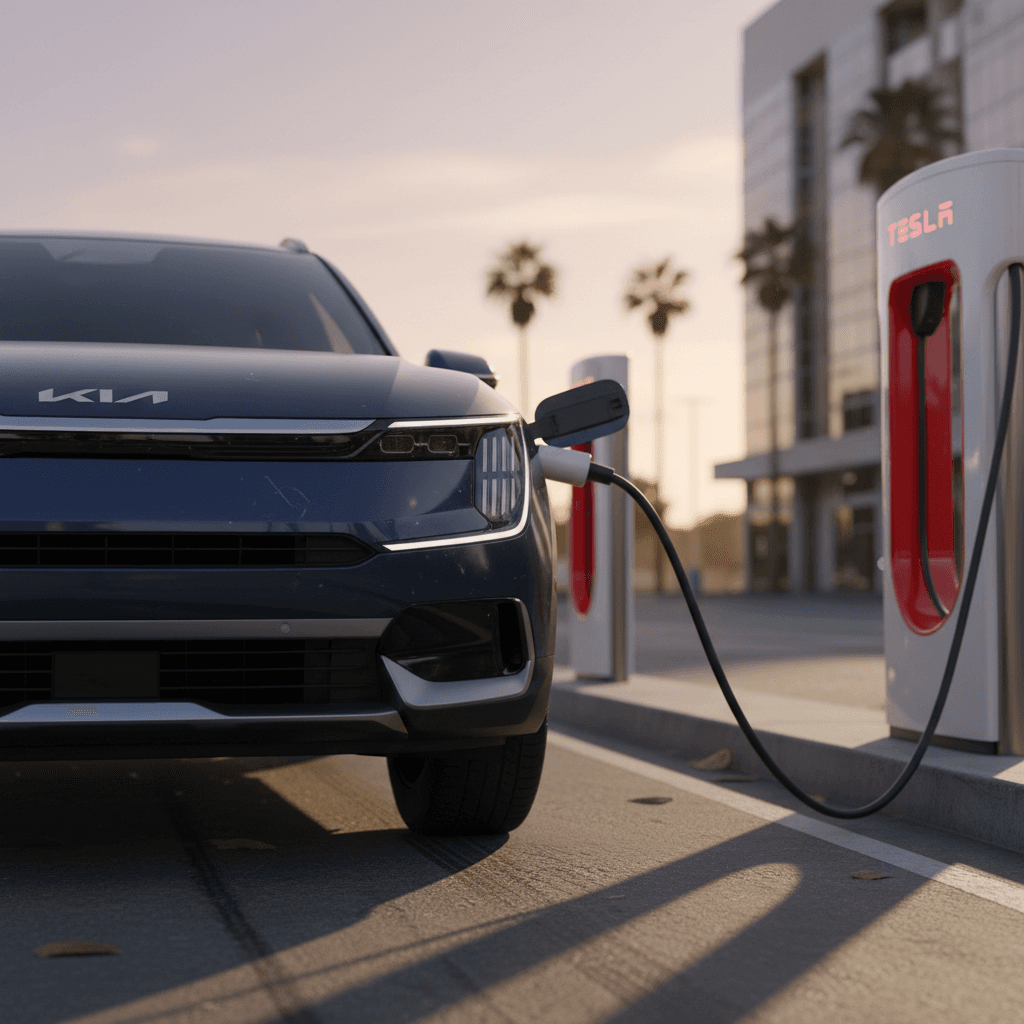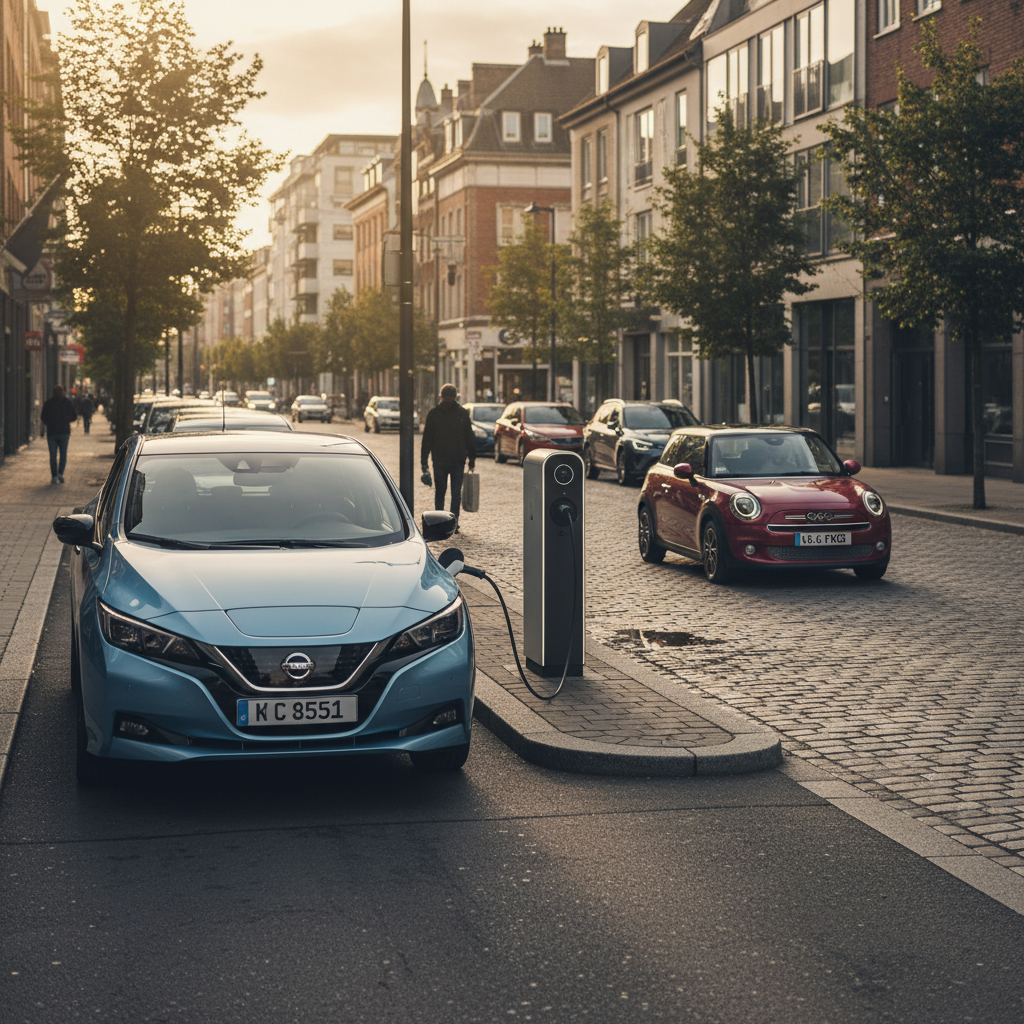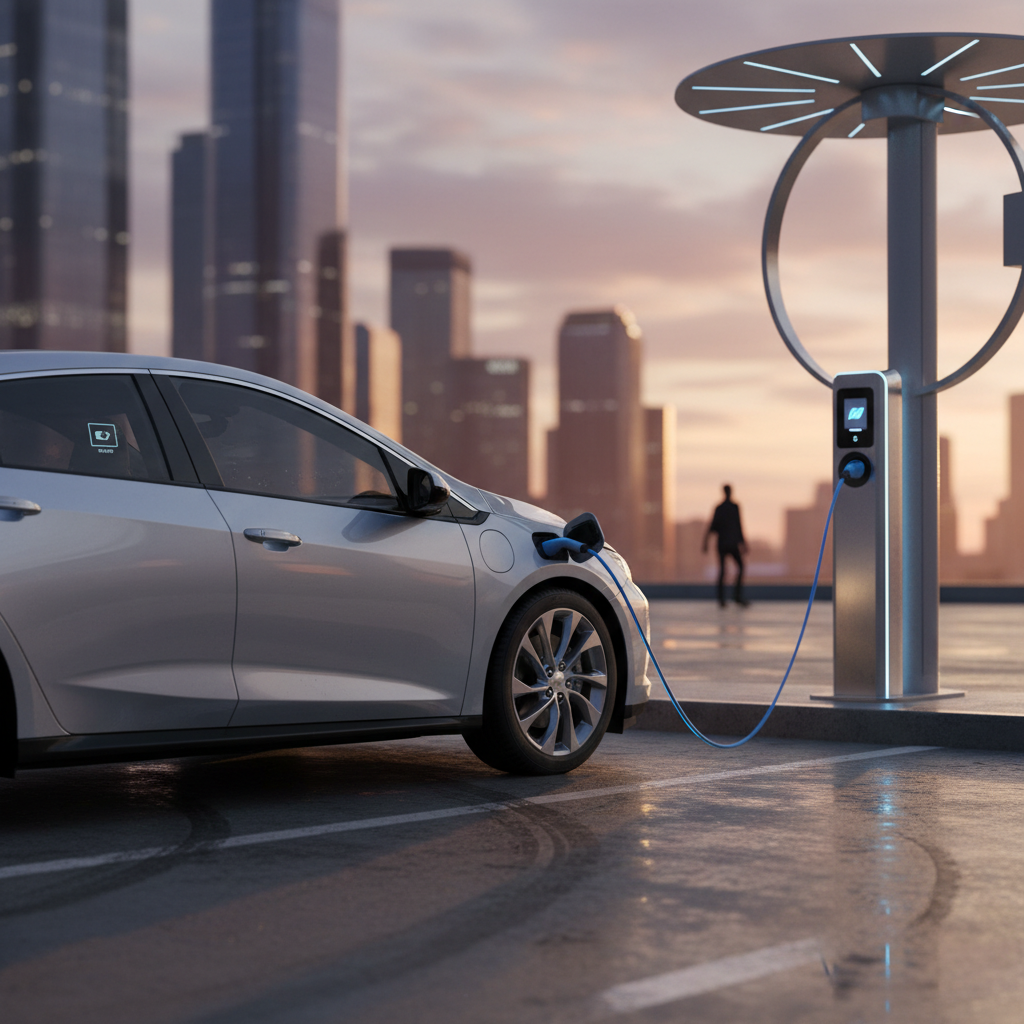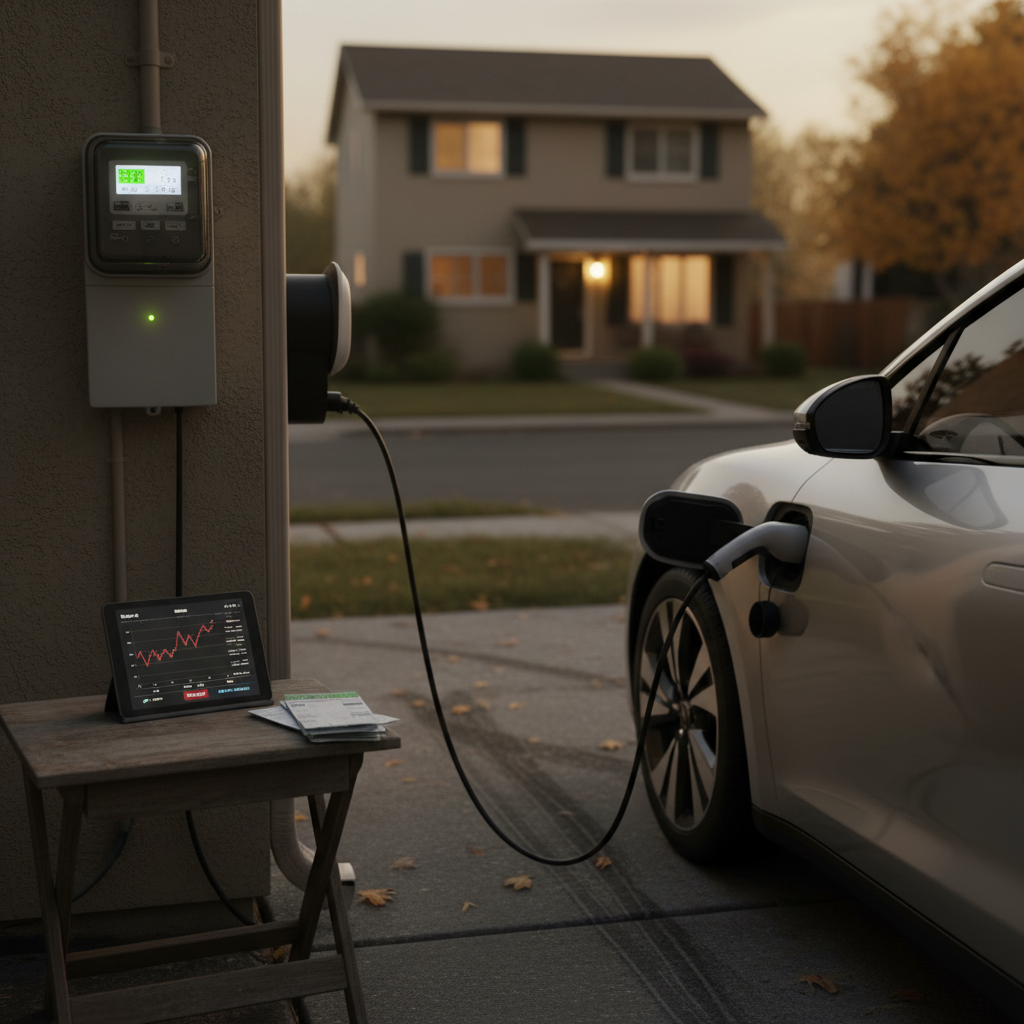If you’ve just bought an EV, or you’re shopping for a used one, it’s natural to type “free Superchargers near me” into Google and hope you’ll never pay for fuel again. The truth in 2025 is more nuanced: genuinely free Tesla Supercharging is rare, but there are still smart ways to get free or very cheap charging if you know where to look.
Quick reality check
Can you really find “free Superchargers near me”?
What’s realistic in 2025
In 2025, Tesla’s Supercharger network is designed as a paid DC fast‑charging service. Permanent, location‑wide free Supercharging is essentially gone, outside of special cases like certain legacy vehicles and targeted promotions on models such as the Cybertruck Foundation Series.
That doesn’t mean you’ll never see a free session. Tesla and other networks occasionally run holiday or weather‑related promos where sessions during specific off‑peak windows are free in selected regions.
Where “free” usually shows up
- Promotional windows – holiday travel weekends, extreme weather events, or local launch promos.
- Legacy perks – some older Teslas still carry unlimited free Supercharging tied to that vehicle.
- Retail‑subsidized charging – grocery chains, malls, or employers offering free DC fast charging to attract customers or staff.
- Non‑Supercharger options – networks like Volta (Shell) often provide ad‑supported Level 2 charging at no cost for a set period.
Free vs. Super‑cheap
When Tesla Supercharging is actually free
Situations where Tesla Supercharging can be free
They’re the exception, not the rule, so it pays to know about them.
1. Legacy free‑Supercharging cars
Some older Teslas were sold with free unlimited Supercharging tied to the vehicle. If you buy one used and the perk hasn’t been stripped, your sessions at Tesla Superchargers may still be free.
Always confirm the status with the seller and by checking the vehicle’s account once you gain access.
2. Limited‑time promotions
Tesla and other networks sometimes offer free Supercharging for new buyers or for specific models (for example, high‑priced launch editions) for a fixed period or number of kWh.
These incentives are time‑bound, so read the fine print, especially if you’re buying that vehicle second‑hand.
3. Holiday and peak‑travel windows
On some holiday weekends or during severe weather events, Tesla has made off‑peak sessions free at selected sites to reduce congestion.
Watch for announcements in the Tesla app, automaker news, or EV media around major travel periods.
How to tell if your session is free
How to find free or discounted EV fast charging
Even if there aren’t truly free Superchargers within driving distance, you can still stack together multiple sources of free or low‑cost charging. The key is to combine EV‑specific apps with a little local knowledge.
- Use EV map apps like PlugShare to filter specifically for free charging stations, both Level 2 and DC fast.
- Check with your employer or building manager about workplace charging; some provide free or flat‑rate access.
- Look for ad‑supported networks like Volta in shopping centers and grocery store parking lots.
- Watch retailer apps (grocery, big‑box, casinos, hotels) for parking perks that include complimentary charging.
- Pay attention to local utility programs that offer free or heavily discounted charging during certain hours.
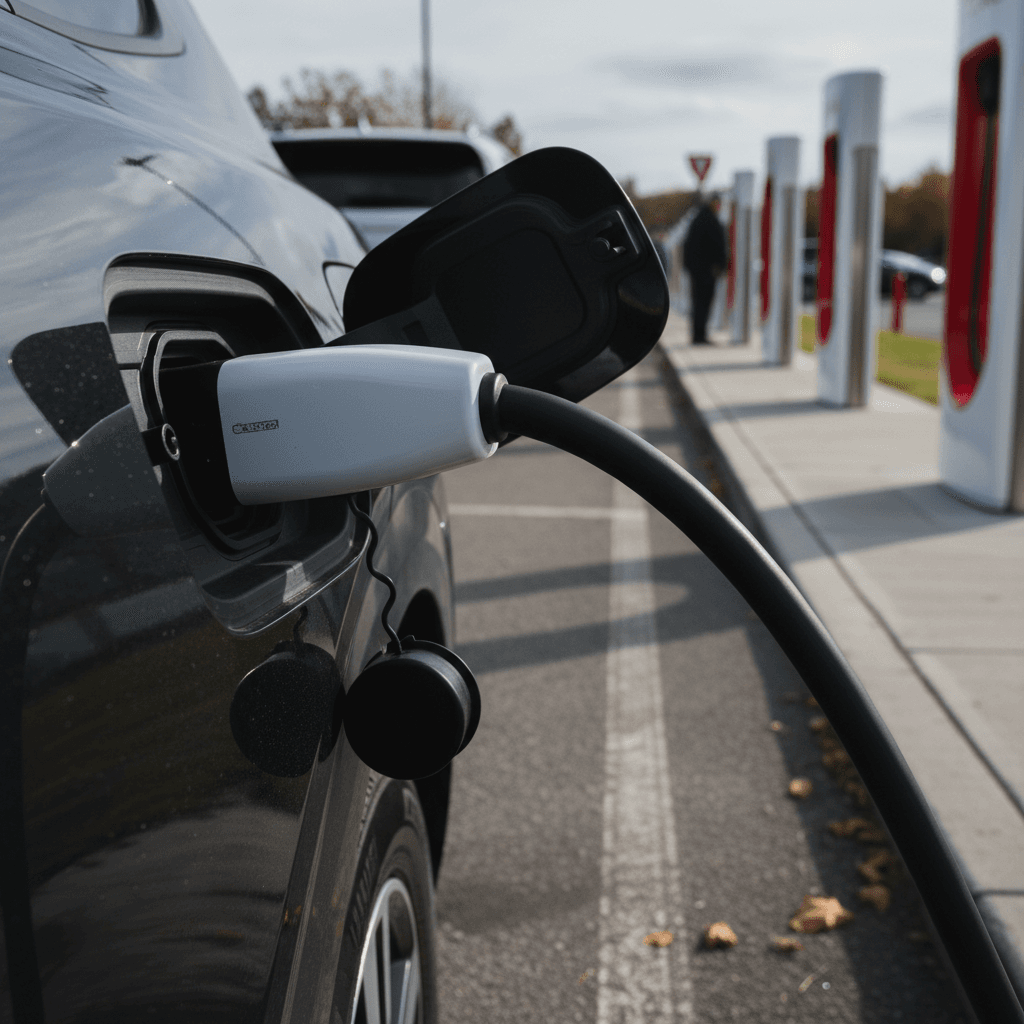
Best apps to locate free EV charging near you
Why charging apps matter in 2025
Apps that make finding free charging much easier
Combine at least two of these for the best coverage.
PlugShare
What it does: Crowd‑sourced global map of charging stations across almost every major network.
- Filter specifically for “Free” pricing and your plug type.
- See recent user check‑ins, photos, and notes about access hours.
- Use the trip‑planner to map free or cheap stops on a road trip.
If you’re serious about finding free charging, PlugShare should be on your phone and in your car’s CarPlay/Android Auto screen.
ChargePoint & other network apps
Network‑specific apps like ChargePoint, EVgo, Electrify America, and others can show pricing and any active promos.
- Filter for DC fast vs. Level 2.
- See live stall availability.
- Unlock discounted member rates off the posted price.
They’re not focused on “free,” but they often reveal very low off‑peak prices you’d otherwise miss.
Volta & retail‑linked chargers
Volta (now owned by Shell) is one of the largest networks of ad‑supported free chargers in the U.S.
- Commonly located at malls, grocery stores, and shopping centers.
- Sessions are often free for a set time (for example, 1–2 hours), then billed.
- Use the Volta app or PlugShare filters to find these locations.
Google Maps & Apple Maps
Both mapping apps increasingly show EV chargers with pricing info. In North America, Google Maps has begun integrating live Tesla Supercharger data, including stall availability and charging speeds.
They’re great for quick searches like “EV charging near me,” but dedicated EV apps still do a better job of highlighting which locations are specifically free.
Pro tip: Save your own free‑charging map
Understanding Supercharger pricing and fees
Even if you don’t find a $0.00 Supercharger, understanding how the pricing works helps you avoid surprises and keep costs low.
Key parts of a Tesla Supercharger bill
These elements can vary by location and state regulations, but the structure is similar across the network.
| Charge component | How it’s billed | What you should know |
|---|---|---|
| Energy cost | Per kWh or per minute | Most stalls now bill per kWh where regulations allow. Per‑minute sites use different tiers based on charge speed. |
| Peak vs. off‑peak | Different rates by time of day | Many sites lower prices late at night or outside commuting hours. If your schedule is flexible, this can be a major saving. |
| Idle fees | Per minute once your car is full | If your car is done and the station is busy, Tesla can charge significant idle fees until you move the car. |
| Session limits | Occasional kWh or time cap | During promos or busy periods, sessions may be capped to keep stalls turning over. Watch your app for notifications. |
Always check the Tesla app for current rates at a specific station before you plug in.
Watch those idle fees
Etiquette rules for free and low‑cost chargers
Charging etiquette that keeps free stations friendly
1. Treat “free” as shared, not personal
Free chargers, especially at popular retail locations, exist to attract customers, not provide anyone with unlimited parking. Charge, then move your car so others can use the spot.
2. Don’t occupy fast chargers when you don’t need them
If you’re going to be parked for hours and there’s Level 2 available, leave the DC fast chargers (including Superchargers) for drivers who really need a quick turnaround.
3. Respect posted time limits
Many free stations impose an hour or two‑hour limit. Ignoring that might earn you a ticket, a tow, or at least some very annoyed fellow EV drivers.
4. Always check in on apps when appropriate
On PlugShare and similar apps, checking in when you start and end a session gives other drivers real‑time information about availability and station health.
5. Leave honest reviews and photos
If a “free” charger is actually behind a gate, in a paid garage, or broken, leaving a note saves other drivers time and frustration, and helps the community spot truly valuable free locations.
How free charging fits into your total EV costs
Think of free charging as a bonus, not a plan
When you’re budgeting for an EV, especially a used one, it’s risky to assume you’ll rely on free fast charging forever. Retailers can end promotions, employers change policies, and even Tesla can alter terms on a new vehicle incentive.
Instead, view free Supercharging and other freebies as opportunistic discounts that lower your average cost per mile over time.
Where Recharged fits in
At Recharged, every used EV comes with a Recharged Score Report that covers verified battery health and fair‑market pricing. While we can’t guarantee free charging, we can help you choose a car whose efficiency and battery condition keep your energy costs predictable.
If you’re comparing two used EVs, our EV specialists can walk you through how each one will behave on public fast chargers versus home Level 2, and what that means for your monthly budget.
Home charging is still the anchor
Step-by-step: How to plan a low-cost charging route
Planning a road trip that takes advantage of free or cheap charging
1. Map your mandatory stops first
Decide where you actually want to stop, meal breaks, hotel stays, sightseeing. Then look for chargers nearby instead of the other way around.
2. Use PlugShare’s filters for free and low‑cost options
On PlugShare, filter by plug type and set price to “Free” first. Mark those locations, then relax the filter to see nearby low‑cost paid options if needed.
3. Check Supercharger pricing in the Tesla app
Tap each potential Supercharger to view current per‑kWh or per‑minute rates and any off‑peak discounts. A cheap, well‑located Supercharger can be a better choice than a slow free Level 2.
4. Mix charging speeds strategically
Use DC fast charging to leapfrog between regions, then top up with free or inexpensive Level 2 where you’ll be parked anyway, like hotels or attractions.
5. Build in a backup for every stop
For each planned charger, identify at least one backup in the same area. Stations can be busy or offline, and the more popular free ones are often occupied.
6. Keep an eye on weather and loads
Cold weather, heavy loads, or high speeds can all reduce your range. Add a buffer to your plan so you’re not counting on the last free charger on the map to make it home.

FAQ: Free Superchargers and free EV charging
Frequently asked questions
Bottom line: What to expect from “free Superchargers”
In 2025, searching for “free Superchargers near me” will occasionally pay off, but it’s not a strategy you should build your entire EV life around. Most Tesla Superchargers are paid, and the truly free or heavily discounted sessions are tied to limited windows, specific vehicles, or special events.
Instead, focus on lowering your overall cost of driving: combine affordable home Level 2 charging with smart use of apps like PlugShare, take advantage of free Level 2 at retailers and workplaces, and watch for time‑limited Supercharger deals when they pop up. If you’re shopping for a used EV, let Recharged help you evaluate battery health, charging speed, and total ownership cost so that even when you do pay to plug in, you’re still coming out ahead compared with gas.
